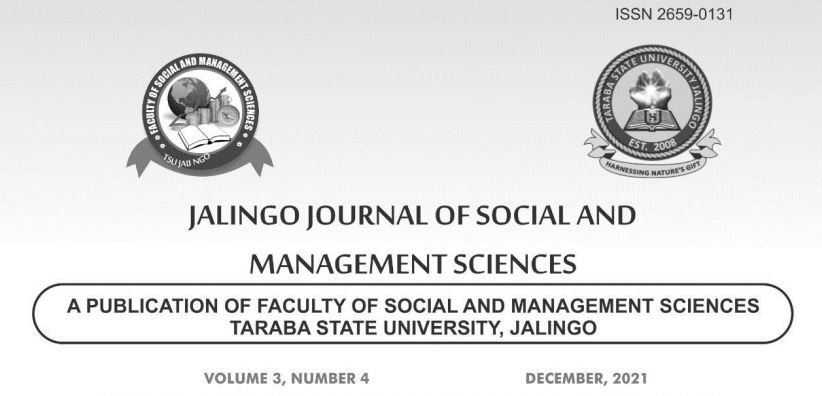Social Factors and Management of Cerebrospinal Meningitis in Magama Local Government Area of Niger State
Keywords:
Educational Attainment, Knowledge, Management, Meningitis, Religious AffiliationAbstract
Meningitis is a fatal disease known to cause huge mortalities in Sub-Sahara African Meningitis Belt. This study is driven by the sharp variation in the incidence and fatality rate of the disease in Niger State, Nigeria which have defied climatological explanations. To this end, the ecosocial theory was used to anchor the study. A survey research design was adopted and data were collected from 246 respondents in five meningitis-endemic communities. Questionnaire was used as an instrument of data collection. Descriptive and inferential statistical tools were used in the presentation and analysis of the data collected. Findings revealed most respondents as being familiar with three symptoms of meningitis namely stiff neck, fever and backache. While most of them only knew two causes of meningitis namely overcrowding and heat. Caregivers with little or no formal education knew fewer symptoms of meningitis as opposed to more educated caregivers who knew more causes of the disease, χ2 (15, N=246) = 60.744, p<0.05. Furthermore, the healthseeking behaviour of the respondents was characterized by significant use of Patent Medicine Vendors as means of managing the disease. Religious affiliations of respondents influenced the respondents’ choice of management method, χ2 (6, N=246) = 26.945, p< 0.0005. Consequently, the study recommends among other things, introduction of basic and adult literacy programmes; and massive sensitization of the people using stakeholders such as religious organisations.

Downloads
Published
Issue
Section
License
Copyright (c) 2023 JALINGO JOURNAL OF SOCIAL AND MANAGEMENT SCIENCES

This work is licensed under a Creative Commons Attribution-NonCommercial 4.0 International License.
